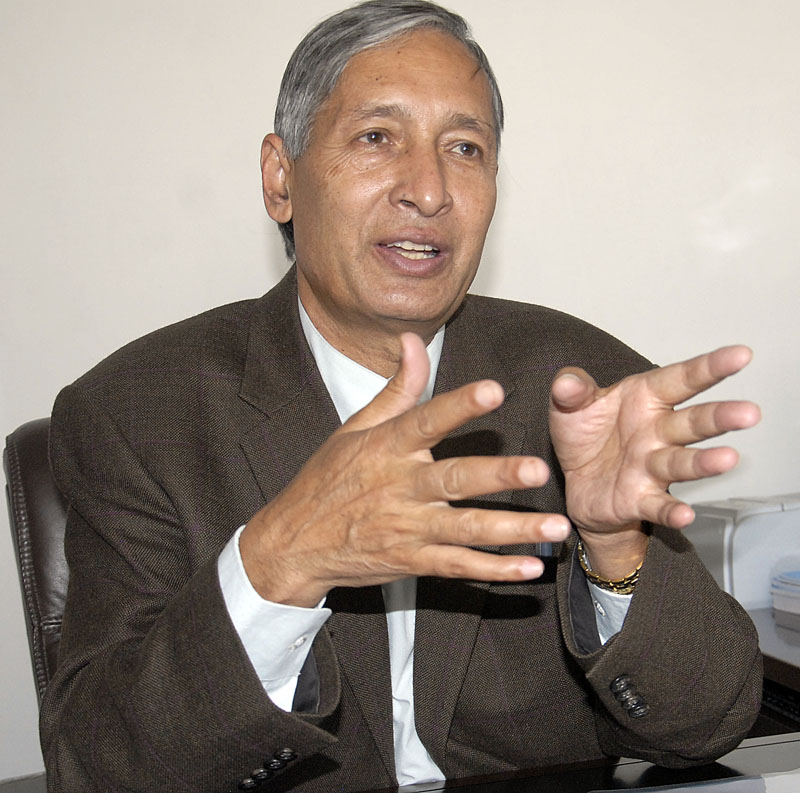Double taxation to be eliminated, says FinMin
Kathmandu, August 12
Finance Minister Yubaraj Khatiwada has said that taxpayers should not worry about the duplication of taxes in the different layers of the government citing that taxes enforced by the subnational governments is because of lack of tax awareness. He reaffirmed that the duplication of taxes will no longer exist.
Speaking in a meeting of the Finance Committee of the federal Parliament, today, the finance minister said that the federal government has corresponded with the subnational governments regarding the tax duplication and enforcement of the taxes beyond their jurisdiction.
“The constitution has clearly mentioned the tax jurisdiction of each layer of government,” said Finance Minister Khatiwada. “The value added tax and the internal excise being collected by the federal government will be shared with the subnational governments from the divisible fund operated by the Financial Comptroller General Office, so the subnational governments should only collect taxes under their jurisdiction.”
He further stated that the country needs to mobilise plenty of resources from both internal (revenue) and external (foreign aid) to expedite the growth process to achieve the government’s vision to move forward towards higher growth trajectory. In this context, Khatiwada asserted that he has urged the development partners to provide support as per the priority of the government as the incumbent government has the unprecedented task of executing the federal system and ensuring the execution of the fundamental rights of the people as defined by the constitution.
The government has set a target of achieving revenue growth of 35 per cent in the current fiscal from the target of Rs 730.05 billion in previous fiscal 2017-18, which is a challenging task for the government. The finance minister said that the government will achieve the set target by widening the tax net. “We have not increased the tax rates
substantially. For instance, effective income tax, for income of over Rs two million has been raised to 36 per cent from the earlier 35 per cent,” Khatiwada said.
Nepal’s tax to gross domestic product (GDP) ratio stood at 24 per cent in last fiscal and average tax to GDP ratio in the last five years is 21 per cent. Nepal is an over taxed economy, in which it will be difficult to attract investors, according to parliamentarians.
“However, without attracting fresh investment in each sector, like agro processing, manufacturing and services among others, it will be tough to expand the tax base,” said Gyanendra Bahadur Karki, former finance minister.
The federal government is moving ahead to execute the budget properly since this fiscal and achieve the targeted growth rate by leveraging the financial resources from the financial sector too, said Finance Secretary Rajan Khanal. He stated that the lack of scientific allocation and the current expenditure system are hindering the country from properly executing the budget.
Meanwhile, speaking in the meeting, former prime minister and Chairman of Nayashakti Party, Baburam Bhattarai has urged for the early appointment of the chairman and members of National Natural Resources and Fiscal Commission.
“The commission can play a vital role in distribution of resources and revenue mobilisation in a federal Nepal, however, the government has yet to recommend the chairman and the commissioner of NNRFC, which has become an obstacle in allocating resources to the local level and reforming the revenue regime,” said Bhattarai. He urged for early completion of commission to prevent issues of tax duplication and other issues related to subnational governments.






